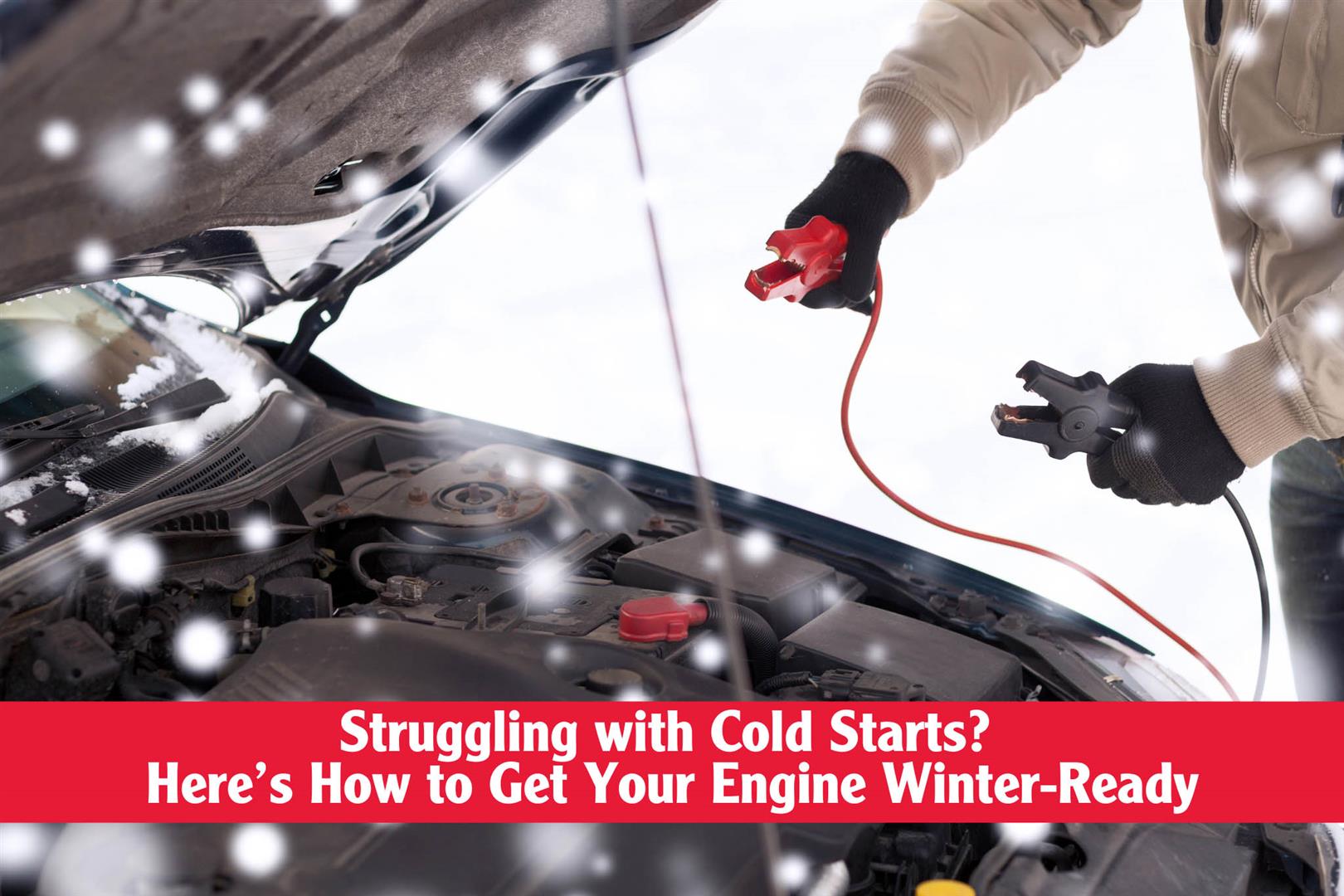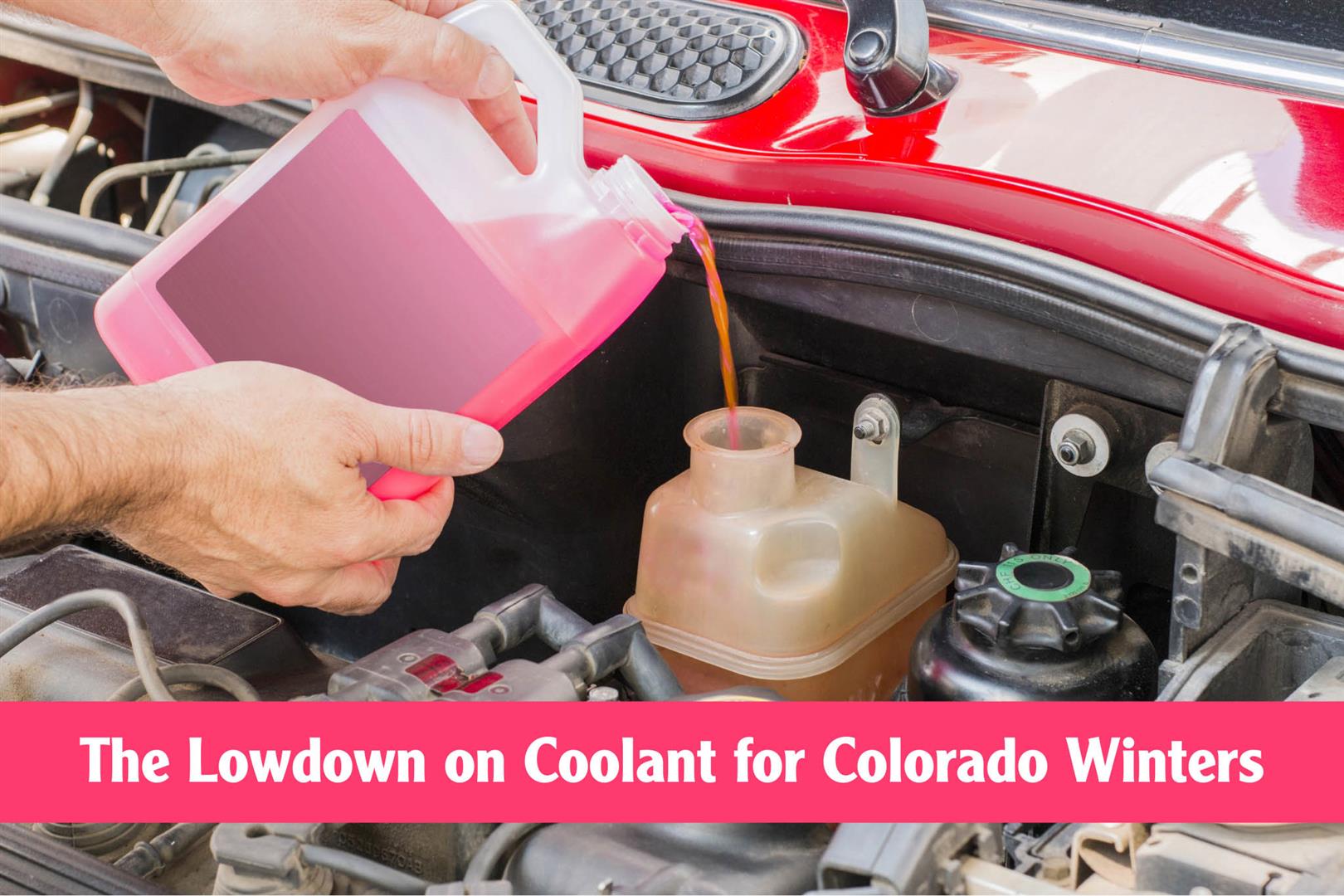Posted on 11/20/2024

Changing your car's oil is one of the most important things you can do to keep your engine running smoothly. But how often should you be doing it? The answer depends on several factors, like the type of oil you use, the age of your vehicle, and your driving habits. General Guidelines For most vehicles, it's recommended to change your oil every 5,000 to 7,500 miles if you're using conventional oil. If you're using synthetic oil, you can often go longer—up to 10,000 or even 15,000 miles between oil changes. Even though your vehicle can run up 10-15,000 miles with synthetic, that is often too long to go without having it inspected by a trusted mechanic, as other systems may develop problems in that time frame. Always refer to your owner's manual for the manufacturer’s recommendations. Driving Conditions Matter Something to bear in mind is that by most manufacturer's definition, driving in Colorado is considered ... read more
Posted on 11/18/2024

When winter arrives in Boulder, it brings more than just chilly weather and snowy roads. Cold temperatures can make engines work harder, especially when it comes to starting up on those freezing mornings. If you’ve ever struggled to get your car going on a frigid day, you’re not alone! But there’s a powerful trick to keeping your engine running smoothly this winter, and it has to do with a little-known, high-impact fuel system cleaner. Here’s what you need to know about how the right fuel system cleaner can make a big difference in winter driving. Why Winter Puts Extra Strain on Your Engine During the winter, the cold affects more than just your car’s battery—it also impacts your fuel system. Low temperatures can cause fuel to thicken, making it harder for your car to start. This is why a clean, well-maintained fuel system is essential for a smooth, reliable winter driving experience. Over time, fuel injectors and other critical p ... read more
Posted on 11/13/2024

If your Ford Escape has been stalling, it can be frustrating and concerning. Stalling can happen for several reasons, and it’s important to identify the issue before it leads to bigger problems. Here are a few common causes of stalling in a Ford Escape: 1. Dirty or Faulty Mass Air Flow (MAF) Sensor The MAF sensor measures the amount of air entering the engine and helps adjust the air-fuel mixture. If it’s dirty or malfunctioning, it can send incorrect readings, leading to stalling. 2. Clogged Fuel Filter or Fuel Pump Issues If the fuel filter is clogged or the fuel pump is failing, your engine may not be getting the fuel it needs. This can cause your Escape to stall, especially when accelerating or driving uphill. 3. Bad Idle Air Control Valve (IACV) The IACV regulates your engine’s idle speed. If it's dirty or damaged, your Escape might have trouble maintaining a steady idle, leading to stalling at stoplights ... read more
Posted on 11/11/2024

As temperatures start to dip here in Boulder, it’s time to make sure your vehicle’s coolant is up to the challenge of Colorado’s winter months. You might think of coolant (or antifreeze) as just a way to keep your car from overheating in the summer, but it’s just as critical for keeping your engine safe in the winter. Here’s a quick guide on why coolant matters and how to keep your engine running smoothly through the cold season. What Does Coolant Do, Anyway? Coolant is a mix of water and antifreeze, circulating through your engine to maintain the right temperature. In the summer, coolant prevents your engine from overheating. In the winter, it prevents the water in your engine from freezing. Without proper coolant levels and the right antifreeze mix, your engine could freeze, crack, or overheat—all of which can cause major (and costly) issues. Why is Coolant Extra Important in Winter?1. Prevents Freezin ... read more
Posted on 11/6/2024

If you’re hearing a clunking noise when you turn your car, it’s a sign that something could be wrong with your vehicle’s steering or suspension system. Ignoring this issue can lead to bigger problems, so it’s best to address it as soon as possible. Here are some common reasons why your car might be making that clunking noise: 1. Worn Out CV Joints or Axles Your car’s constant velocity (CV) joints are responsible for transferring power to your wheels when you turn. If these joints are worn out, especially in front-wheel-drive vehicles, you’ll hear a clunking or clicking noise when you make turns. 2. Loose or Damaged Suspension Components Ball joints, control arms, or tie rods are critical parts of your suspension system that help keep your car stable. When these parts are loose or worn, they can create a clunking sound, particularly during turns or when going over bumps. 3. Bad Struts or Sh ... read more